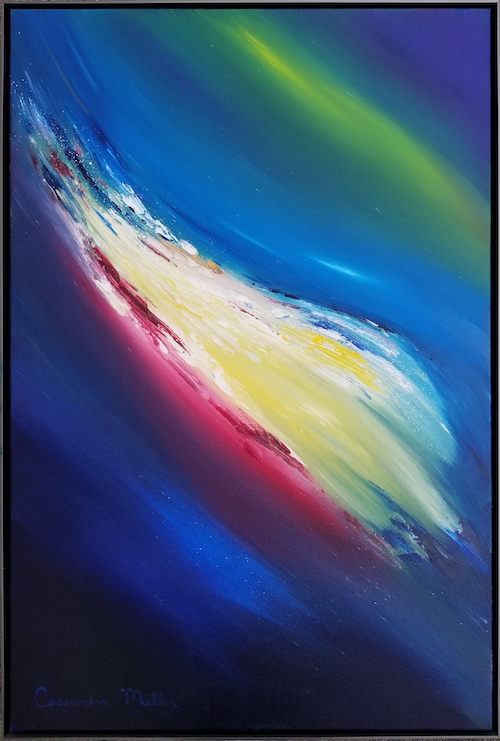

Rev Dr Chris Wright is Global Ambassador of Langham Partnership (www.langham.org), the author of many books including commentaries on Exodus, Deuteronomy, Jeremiah, Lamentations and Ezekiel, and is a Senior Research Fellow of the KLC.

In our first reflection on Psalm 96 (TBP 06), we saw how verses 1–3 call on worshippers to sing a new song that refreshes the old words. Words that had been part of the old songs of Israel for centuries – the name, salvation, glory and mighty deeds of Yahweh – were envisaged as a new song to be sung among new peoples in all the earth. Then in our second reflection (TBP 07), we heard the central section, verses 4–9, singing a new song that displaces the old gods. They cannot stay around when the new song is being sung, as the worship of all nations, to the Lord, to Yahweh, the one true living God revealed in Israel.
At verse 10 we reach the climax of the psalm, with the proclamation that some other psalms put right up front. “Say among the nations, the Lord reigns.” Here now is the essential content of the new song. It is the proclamations among the nations of the good news that the Lord reigns, that Yahweh has always been, is now, and always will be the king of the universe. Yahweh reigns. And that’s to be said and sung and celebrated not just in the temple in Jerusalem, but among all the nations. Almost a thousand years before Jesus came preaching this on the streets of Galilee, here we have the announcement of the good news of the kingdom of God – good news for all the earth.
The rest of the psalm (vv. 10b–13) goes on to describe what this reign of God will be like, by “undescribing” the world as we know it (if “undescribe” is a word; and if not, it should be!). The psalm calls on our imagination (as good poetry and song often do), and invites us with the eyes of faith to visualize a transformed world. And that indeed is also the motivating imagination of mission. Mission not only looks back to the old, original truths of the gospel (vv. 1–3); mission not only looks around at the nations and summons them to worship the only true and living God (vv. 4–9); mission also ultimately looks forward and draws us into a future which transcends the present world in which we live (vv. 10–13). Let us sing, then, this new song that transforms the old world.
Verses 10–13 portray three features of this new world order under the reign of God.
a) It will be a world of reliability.
“The world is firmly established, it cannot be moved” (10b). That is a reminder, of course, of the stability and consistency of the world as God originally created it. But it’s not how the world feels today. The world in which we live (and indeed the world the psalmist lived in too), is a world of instability, chaos and despair, in which things seem anything but stable. Whether you look at the world of nations, the so-called international order (which seems about as disordered as you could imagine), or at the natural world, where we are beset with unpredictability and climate chaos, there seems to be nothing we can take for certain and rely on. And it gets scary, whether we think of rogue states or rogue viruses, or global debt or global warming, virtual realities, artificial intelligence and deep fakes – things seem out of control. Léonard Cohen sounded prophetic when he sang about things sliding in all directions, such that we simply can’t measure anything anymore.
That’s true, isn’t it? That’s the world in which we live. But our psalmist calls us to sing a song which celebrates in advance the inversion of that. By the transforming power of God we anticipate a new and reliable world order that will be dictated not by any human government but ultimately only by the reign of God.


b) It will be a world of righteousness.
“He will judge the peoples with equity” (v. 10c). “He will judge the world in righteousness and the peoples in his faithfulness” (v. 13). Equity, righteousness, faithfulness – core values of the reign of God. And once again we have to say our world certainly isn’t like that either. Ours is a world of unfairness, injustice, lies and violence. And so was the world of the psalmist (as many of the psalms complain). But he calls us to be singing already about the justice of the kingdom of God. For when God comes he will “judge the earth” – that is, he will put things right for good and all.
“If I by the finger of God cast out demons,” Jesus said, “then the kingdom of God is among you.” Jesus came not only announcing but inaugurating the reign of God. Yes, but like a mustard seed, he explained. The mustard seeds of people who, having entered the kingdom of God by submitting to Jesus Christ as Lord and King, are committed to its values, standards and demands. People who live their lives according to a different song and a different rhythm. People who seek first the kingdom of God and his justice, people who hunger and thirst for justice. People who pray “Let it come, your kingdom,” and who behave and work as if they meant it and longed for it. For in such people the kingdom of God, with its equity, righteousness and faithfulness, is already at work in the world.
c) It will be a world of rejoicing.
The psalm ends with three verses (11–13) that are an explosion of jubilation in all creation – a great “Ode to Joy” (if you can get Léonard Cohen and Beethoven into the same article, it’s probably fairly balanced …). The whole of creation is summoned to rejoice before God.
Let the heavens rejoice, let the earth be glad;
let the sea resound, and all that is in it.
Let the fields be jubilant, and everything in them;
let all the trees of the forest sing for joy.
Let all creation rejoice before the Lord, for he comes,
he comes to judge the earth.

But again, “rejoicing” is not the first word that comes to mind when we think of what the world is like now. Our world is an ocean of sorrow and pain and tears and such an inestimable quantity of suffering that we just can’t get our heads or our hearts around it. Can we watch the news sometimes without profound grief and tears? And we can only see a fraction of the world’s suffering. What is it like for God to know the pain of every human heart in this world, every family shattered by war, every child maimed or orphaned, every woman raped …? And it’s not only the horrendous pile of human suffering, but God hears the mourning and the sighing of creation itself. “The earth moans,” said Hosea (4:3). “The creation groans,” said Paul (Rom 8:22), largely because of the violence, destruction and pollution that we inflict on it. That’s our world.
Yes, says the psalmist, but God is coming to judge the earth, that is, to put things right. That’s what the word means in Hebrew, not just negative punishment (though it includes that) but finally putting all things right. There will be a mighty rectification for the whole earth and its inhabitants. And when God comes to put things right then all of creation will rejoice – as Paul also anticipates in Romans 8.
Some years ago, our three older children told us (now that they are all grown up they probably thought it was safe to do so), about a game they used to play when they were very little. When we were somewhere else in the house, they would go into the front room and do everything they weren’t allowed to do. They would jump up and down on the sofa and throw the cushions around at each other … until one of them shouted out “Mummy’s coming!” And then they all had to sit down very still, and the last one to sit down was “out.” “Let’s play Mummy’s coming!” they would say, apparently. Because you see, there will be joy or judgement depending on who’s doing what when she opens the door. Just a children’s game, but you see the point I’m making. What does it mean for us to believe and affirm that God is coming? That’s how the Bible ends – with the words of Jesus, “Yes, I am coming soon.”

And when God comes to put things right, the whole of creation will rejoice. This is a song for the whole creation. And so is our mission. Mission proclaims a new world under the reign of God, and calls upon us to sing and celebrate it in advance. “Hope is hearing the music of the future. Faith is dancing to it today,” said Rubem Alves, a Brazilian theologian. That’s the kind of hope and faith Psalm 96 celebrates and generates.
So, in our three studies on Psalm 96, we’ve seen that Christian mission is like going out to sing a new song among the nations and inviting them to join in. It’s a new song that rekindles the truth of the old words, of God’s salvation, and brings their truth to new singers. And Christian mission sings a new song that challenges and displaces the old gods and idolatries (even when they’ve crept back into the church), and loosens their grip on people’s hearts and homes and lives. And Christian mission sings a new song that celebrates in advance the transformation of this old world into the kingdom of our God and his Christ.
Is that the song people hear humming in your life, and echoing from your church? Are we performing the music of mission in these challenging, attractive and hope-filled keys? It shouldn’t only be at Christmas that we sing Isaac Watts’s wonderful hymn, based on Psalms 96 and 98.
Joy to the world! the Lord is come;
Let earth receive her king.
Let every heart, [every human heart], prepare him room
and heaven and nature sing.
“Sing to the Lord a new song, all the earth.”